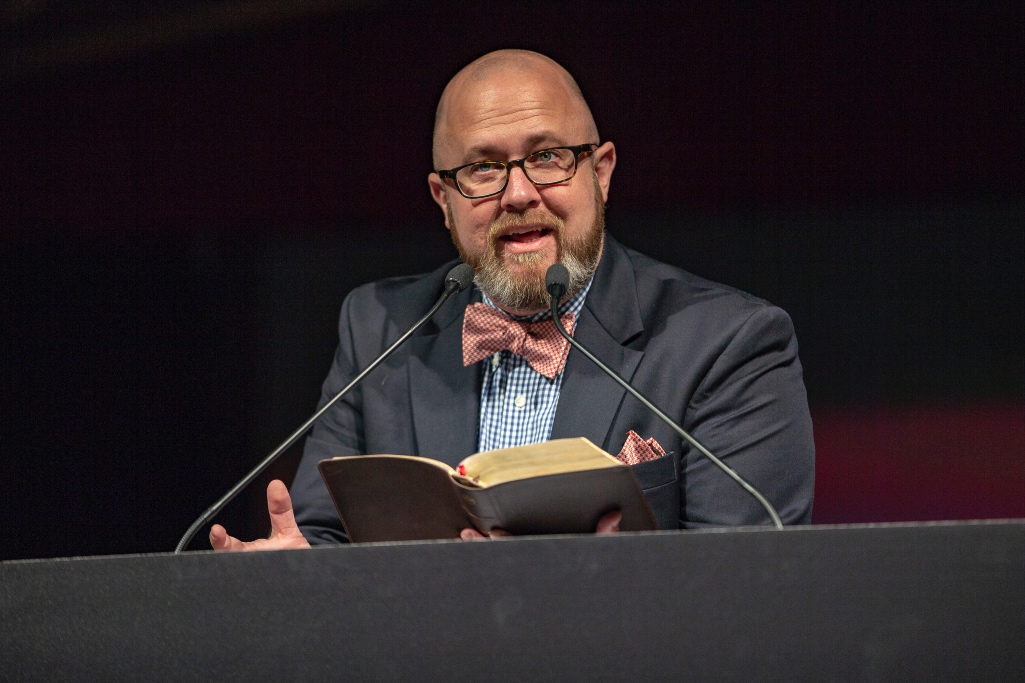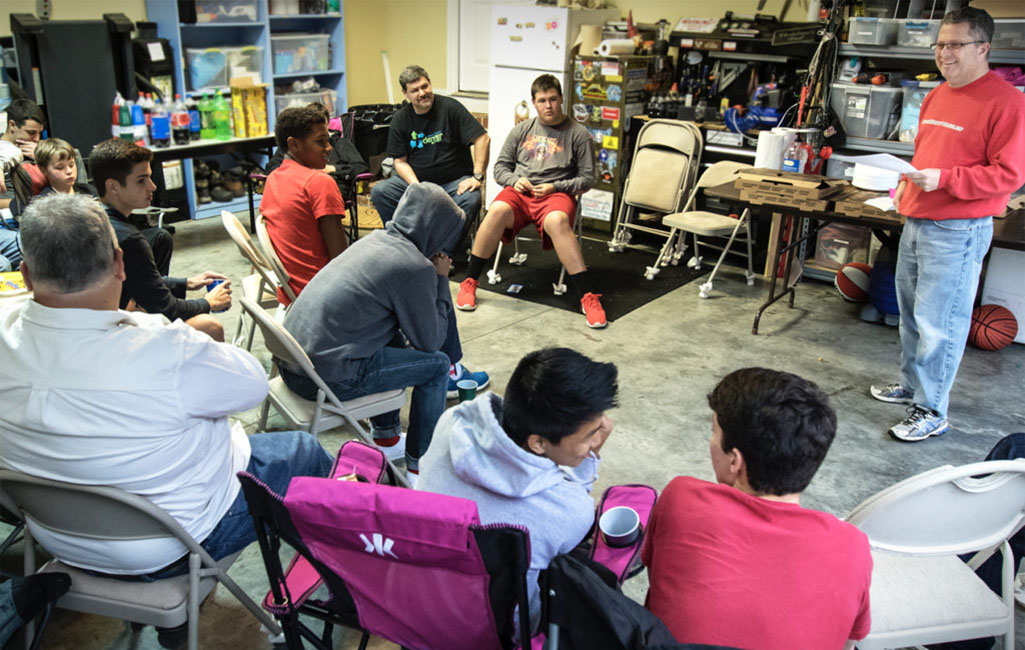
Matt Capps, pastor of Fairview Baptist Church in Apex, N.C., served as brand manager for “The Gospel Project” when the Bible study curriculum was launched 10 years ago.
Prior to becoming senior pastor of Fairview Baptist Church in Apex, N.C., in 2015, Matt Capps served as the brand manager for a new Bible study curriculum developed by Lifeway Christian Resources called “The Gospel Project.”
To mark the 10th anniversary of the launch of “The Gospel Project” earlier this week, the Biblical Recorder caught up with Capps to ask him about his involvement with the project, what those early days were like and the curriculum’s impact.
Capps also helped us connect with his former colleague Trevin Wax, who served as managing editor of “The Gospel Project” in those initial days. Wax now serves as vice president of research and resource development at the North American Mission Board. Here are their responses to our Q&A.
What was your role with “The Gospel Project,” and what did it entail?
Matt Capps: I was the brand manager for “The Gospel Project.” In my last interview for the position, [former Lifeway Senior Vice President] Eric Geiger said, “You will be the first brand manager for our organization. Let’s give it six months to see how it goes.” That’s somewhat of an unsettling thought for someone who is considering uprooting his family. Looking back, I think Geiger was testing my initiative and motivation. And, it worked. I like challenges.
As a brand manager, my role was to oversee the messaging and strategy for the curriculum. This means, I worked closely with Ed Stetzer and Trevin Wax, and horizontally provided input and leadership to the various teams that developed the curriculum (social media, marketing, customer service, editors and conferences).
Trevin Wax: The goal was 50,000 [users] for the first quarter. We couldn’t believe the launch success. It was so wildly bigger than anticipated. We kept that first quarter of materials in print by going back to the printer again and again. We then sought to “double it,” which we did by the time we got to the second cycle (1 million). It was tripled by the time we got to the second cycle (1.5 million).
What were those early days like?
MC: In the early days, I was attempting to carve out and establish how a brand manager might function within Lifeway’s structure. And, particularly with “The Gospel Project,” my goal was to establish this curriculum line as the most trustworthy gospel-centered resource for local church classes and groups. In order to do this, I built relationships with trusted pastors and church leaders, traveled to churches and conferences all over the United States, and really clarified the messaging strategy to reach our intended market.
TW: Those early days were really busy. Matt was not only leading the charge for branding and outreach, but he was establishing a particular role that would soon be replicated. He was a trailblazer in that way, organizationally. And he helped “The Gospel Project” get a lot of goodwill during the crucial phases of the launch year and beyond.
What makes the curriculum unique, and why did you want to be a part of “The Gospel Project” team?
MC: Lifeway is known for its trustworthy biblical resources. When it came to the curriculum lines, if you were looking for a life application driven resource, you’d turn to “Bible Studies for Life.” If you wanted a verse-by-verse study that leaned in on historical, cultural and geographical information, you’d turn to “Explore The Bible.” Until “The Gospel Project,” there was no theologically driven curriculum that attempted to show how the Bible was one unified story with Jesus Christ as the center.
“The Gospel Project” is biblical theology as a curriculum. Of course, we would hope that all theology is biblical. But, biblical theology as a discipline has as its goal to provide a map to help us understand the overall unity of the Bible and help us see that there is a central message to the Bible rather than a number of unrelated stories and themes. Biblical theology operates under the premise that the Bible is a unified history of God’s progressive revelation to mankind.
Even though God called you back into pastoral ministry after just a couple years on “The Gospel Project” team, what did you learn and carry with you from that experience?
MC: I learned that our church people are hungry to understand the Bible and grasp the theological themes and concepts that frame the biblical narrative. Most people don’t think of themselves as theologians. However, if you have thoughts about God, you are, in essence doing, theology. Everyone in the church can become a better theologian. And “The Gospel Project” proved there is a desire to grow in that area.
Personally, I learned how to lead horizontally. There were multiple departments that had roles in “The Gospel Project’s” success. I learned how to lead relationally and network the different teams to get everyone on the same path, namely accomplishing our goal
The church you pastor uses “The Gospel Project” in a number of life groups ranging from children to adults. What are the curriculum’s strengths, and how has it impacted the church you serve?
MC: The gospel is made clear in every session. So, I have confidence that every group using “The Gospel Project” is hearing the gospel and learning how it applies to all of life. “The Gospel Project” has helped develop our people theologically as they are understanding key theological themes and how all of Scripture works together to point to Christ. When different age groups are using “The Gospel Project,” it makes the conversations from the class to home much easier.

